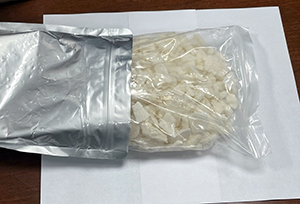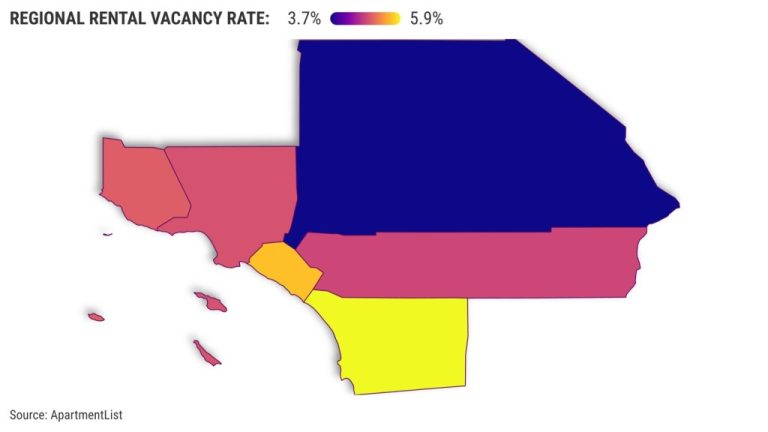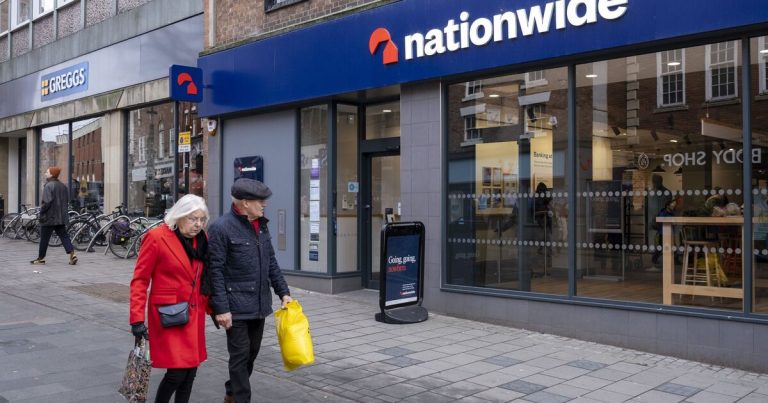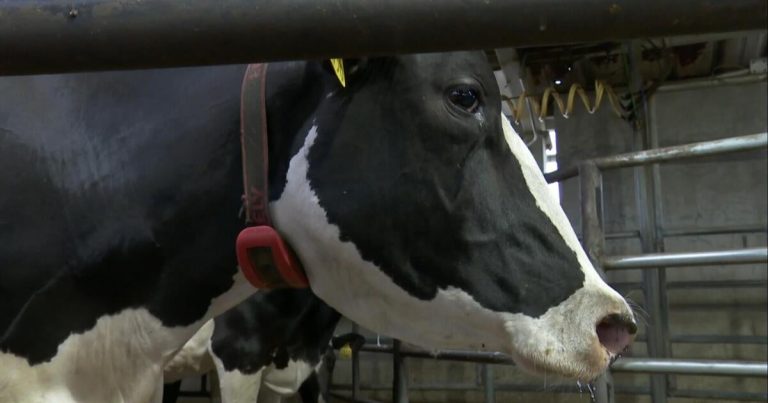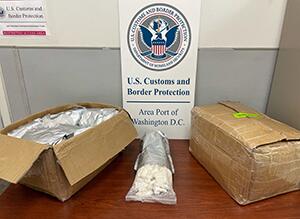
STERLING, Va. – Clandestine labs across the globe are cooking cathinone concoctions quickly in the hopes of slipping these new substances past law enforcement before authorities can identify them, but U.S. Customs and Border Protection officers were up to that challenge recently at Washington Dulles International Airport.
On June 26, CBP officers intercepted two boxes destined to an address in Washington, D.C., that contained about 71 pounds of a N,N-Dimethylpentylone Hydrochloride, a substituted cathinone and a scheduled I controlled substance. Substituted cathinones are modified based on the structure of cathinone. Cathinones cause psychoactive and hallucinogenic effects similar to amphetamines.
It is being sold in powder and tablet form on the streets as ecstasy or molly ever since authorities initially identified it in the United States during the Fall of 2021.
Synthetic stimulants have been reported to cause adverse health effects, such as high blood pressure, rapid heart rate, hyperthermia, dehydration, arrhythmias, hallucinations, loss of consciousness, and death.
The Dimethylpentylone load arrived from China and was manifested as beauty products. CBP officers inspected the contents and discovered multiple vacuum-sealed bags that contained a white, crystalized substance. CBP officers tested the substance using a handheld elemental isotope analysis tool which identified the substance as N,N-Dimethylpentylone Hydrochloride.
The shipment weighed 32.2 kilograms, or about 70 pounds.
CBP officers seized the Dimethylpentylone load and turned it over to special agents from Homeland Security Investigations (HSI) for further investigation.
“The synthetic stimulant market tries to stay one step ahead of law enforcement by continually tweaking cathinone’s chemical compounds to create new, yet still dangerous, analogues. Customs and Border Protection officers remain committed to protecting our communities by detecting these new illicit psychoactive stimulants and working with our federal, state, and local partners to hold importers accountable,” said Christine Waugh, Acting Area Port Director for CBP’s Area Port of Washington, D.C.
CBP officers and agents seized an average of 2,895 pounds of dangerous drugs every day at our nation’s air, land and sea ports of entry. See what else CBP accomplished during “A Typical Day” in 2022.
CBP’s border security mission is led at our nation’s Ports of Entry by CBP officers and agriculture specialists from the Office of Field Operations. CBP screens international travelers and cargo and searches for illicit narcotics, unreported currency, weapons, counterfeit consumer goods, prohibited agriculture, invasive weeds and pests, and other illicit products that could potentially harm the American public, U.S. businesses, and our nation’s safety and economic vitality.
Learn more at www.CBP.gov.
Follow the Director of CBP’s Baltimore Field Office on Twitter at @DFOBaltimore for breaking news, current events, human interest stories and photos, and CBP’s Office of Field Operations on Instagram at @cbpfieldops.


